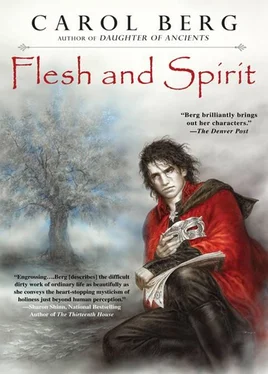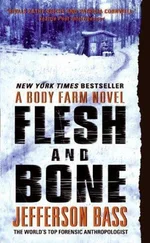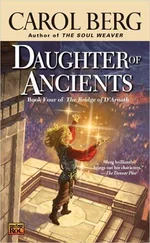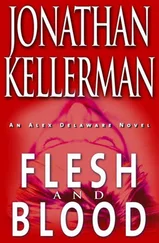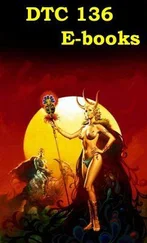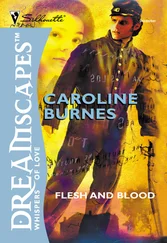Rubble littered the square, the angular bulk of fallen cornices and corbels bulging awkwardly beneath the snow, alongside the birdcage shape of Saint Gillare’s shrine. Though every building showed damage, the primary target of the raid was obvious. The walls of the abbey library and scriptorium had collapsed completely, crushing the eastern cloister walk. Naught was left but heaps of scorched stones and charred beams. The chapter house on one side and the monks’ dorter on the other gaped open on the sides that had adjoined the library. Both structures were gutted shells. Of the jewel-like chapter-house windows, depicting Eodward and Caedmon, only one soot-marked pane remained, bearing the outline of an upraised hand.
So what had become of the magical lighthouse and its tools and books and seeds, gathered to sustain humankind past these dark times? Its creators had surely built it to endure through end-times chaos and destruction. Was this raid Bayard’s vengeance for the abbey’s sheltering Perryn? Or was this Sila Diaglou’s handiwork? The lighthouse would be anathema to her, a promise to undo the chaos she worked for. I thought back to her savage attack on Gildas…a ploy to “draw out” her enemies…and Luviar and Stearc and Gram running for the gate. Yes, she knew of the lighthouse and its creators.
Firelight flickered in the far corner of the cloister, where the great hearth of the calefactory was required to remain lit until Saint Mathilde’s Day. As I rested my back on a slender column, a handbell broke the oppressive silence, ten measured rings calling the monks to the Hours, a thin, strident summoning compared to the sonorous richness of the bronze bells fallen from the belltower. The pattern of two, three, and one, followed—Vespers, the Hour of peace. But I felt no peace and could not shake the sense that more than bodies and buildings had been shattered here.
I believed in the gods and their creatures—whether they were named Kemen or Iero, angels or Danae or gatzi. Even a dolt could see that the universe was no soulless clockwork, but infused with life beyond human understanding—wondrous and mysterious, perilous and exquisite. But as to whether the deities truly listened to our prayers or desired our votive gifts or libations or blood sacrifices, I’d been content to leave that study to wiser heads. And never had I given literal credence to the god stories and myths I’d been told—of Deunor’s stolen fire that lit the stars or of the Danae whose dancing nourished the world and held it together. Not until I looked on the ruins of Gillarine and knew in flesh and spirit, breath and bone, that the Canon, the pattern of the world, was truly broken.
Curious, apprehensive, I knelt at the edge of the cloister walk and brushed away a patch of snow. The grass of the garth, so thick and green but a month ago, lay yellow and slimy. I pressed my hands to the earth.
Nothing. No slamming darkness. No piercing light. No music of grief or longing to wrench my soul as it had every time I’d tested this particular patch of earth. I felt only the sickness of the outer world that had intruded here. Plague into the sheepfold. Rot into the orchard. Fire and death into the cloisters.
Wiping my hands on the hem of my cloak, I sat back on my heels. Stories nagged at me. King Eodward had built this abbey on “holy ground.” I had almost forgotten the first death. Young Brother Horach had been brutally murdered inside Saint Gillare’s shrine, where the holy spring bubbled up into the font. Harrowers poisoned the land’s guardians with violated corpses. That was what Sila Diaglou and her cohorts had tried to do with Boreas. I recalled Graver’s Meadow, the lush grass and shimmering pond that swelled my spirit as if the angel choirs sang in the abbey’s soaring vaults. Easy to believe a guardian had lived there.
What if the legends of Eodward and the angels and Gillarine’s holy, fertile ground had given someone to believe the abbey spring a Danae sianou? And what if that someone had tried to poison the guardian Dané with the murdered Horach? The plan would have failed, because the true sianou lay at the spring’s source in the hills at Clyste’s Well. Clyste would have lived on, locked away for her part in my grandfather’s crime, yet still infusing the abbey fields and flocks with her own life and health, a balm to such horrors as Black Night. And then I had opened the way to her holy place…
Faces, events, information shifted, twisted, and settled into a new pattern like tiles into a fine mosaic. Gerard had disappeared on the night of my attempted escape, only days after I had led Gildas to Clyste’s Well. And only days later, pestilence had come to Gillarine.
I jumped to my feet, horror and certainty wrenching mind and heart. I knew what had happened to Gerard. Tears that had naught to do with the cold blurred my vision. Murdered. Great gods in all heavens, they had murdered the boy to kill the Danae guardian of the abbey lands. I knew it as I knew my own name. And now I understood what crime had been committed, it became clear who had committed it.
I stepped into the cloister garth and spun as I yelled, violating the holy silence and the land’s grieving. “Where are you, monk? Gildas, come out here and tell me what you’ve done!”
Blind and stupid, Valen. Self-absorbed wretch. From the moment I had stepped into this abbey he had played me like a vielle. How had I not seen? Great Iero, he had all but told me outright. I belong with the cabalists little more than you, he’d said. And, If the cities die, if learning dies, we are sent back to the land, to nights in the wild forest with spirits we can no longer tame with words, to awe of these Gehoum—the Powers who make the sky grow light or dark, whose righteous wrath is fire and storm. Righteous wrath. Everyone should be pure like you and Gerard, he had told Jullian. Horach had been his student…and an innocent, too.
The part of me that believed I was unworthy of this place, that bore gratitude and affection for Gildas, who had welcomed me with good humor and allowed me to imagine I could be friends with scholars and men of substance, cried out that I was wrong. But I was not. Not this time. Clyste was dead. And so was Gerard.
“God-cursed child murderer!”
Brother Cantor intoned the opening note of Vesper plainsong as if to correct the abrasive timbre of my shouts, and then the voices—so terribly few—joined in the chant. Perfection, continuity, clarity…the music swelled as their procession approached the ruined cloisters.
Sila Diaglou’s spy had told her of the lighthouse. But he couldn’t tell her how to get into it and destroy its contents, because he was not privy to that secret. And a runaway novice had disrupted their ruse to lure Luviar and Stearc into her clutches with a bloody Gildas as bait. No wonder his hands had been left loose that night; he had offered himself to his Gehoum—a noble sacrifice. So he had waited until Palinur and given her Luviar and Victor. No wonder Gildas had looked dismayed when I told him Brother Victor had survived the gallows—not only because the chancellor was in Osriel’s custody, but because the little monk could reveal who had betrayed him and his abbot.
Where are you, betrayer? I tugged at my hair. Gildas would not be at prayers. The worm would lurk in the heart of the cabal—with Gram and Stearc and Elene. I ran for the guesthouse, forced by shattered walls and rubble to circle south of the lay brothers’ reach and past the ruined kitchen. Across the yard. Up the stoop.
“Come face me, gatzé! Tell me how clever you are to fool an ignorant pureblood!”
I slammed through doors and kicked aside the toppled furnishings and soot-grimed couches littering the dark rooms of the ground floor. A single rushlight burned in a tripod holder near the stair. I sped up the narrow, winding ascent. Yelling. Heedless.
Читать дальше
